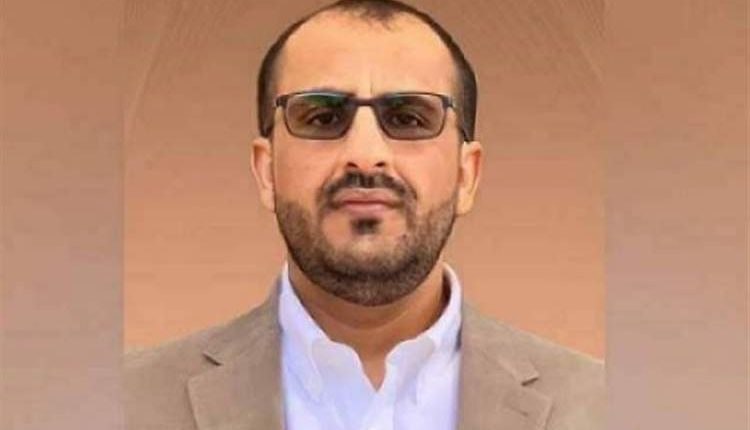Abdulsalam: What Has Been Implemented in UN-sponsored Truce, Minimum
The head of National Delegation, Mohammed Abdulsalam, confirmed that “the truce agreement is clear and announced, and what has been implemented is minimum.”
“There is some commitment with regard to large-scale operations, but spy and fighter drones did not stop, and carried out a number of raids,” he explained.
He added that “artillery shelling, especially on the borders, is still continuing, and sniping operations by the US-Saudi aggression have resulted in casualties, noting that the bombing of warplanes and reconnaissance is big breach of truce.”
“32 civilian flights were supposed to be carried out from Sana’a Int. but only 18 of them were carried out, and they will not exceed 20 during the remaining period of the truce,” Abdulsalam said.
He pointed out that only one flight departed from Cairo Airport to Sana’a Int. Airport, stressing that this is also a major violation of the truce, revealing the refusal of the US-Saudi aggression to bring fuel for planes to Sana’a and schedule flights.
He stated that it was agreed that 36 ships would enter the port of Hodeidah, but only 24 ships entered, only three of them were in custody, and some ships were delayed for 21 days.
Mohammed Abdulsalam affirmed Sanaa’s refusal from the first day to name roads intended for opening because this is related to military actions, explaining that the opening of roads must be based on a discussion between parties on the field.
He pointed out that there was an attempt to exploit the issue of opening roads and use it as a propaganda, pointing out that Sana’a had presented initiatives to open three roads in Taiz, but the Saudi-backed party refused.
“We proposed to the US-Saudi aggression, with Omani mediation, a truce that allows for political discussion, but they refused.”
Abdulsalam stressed that the UN is unable to find a solution, indicating that the Saudi-backed party wants hardship to the Yemeni people, and “we cannot accept the continuation of the siege. Sana’a demanded that salaries be paid and that the revenues go to one fund in favor of salaries.”
Abdulsalam also made it clear that the Saudi-backed party is not represented by one point of view, noting that the they cannot bring a single committee to negotiate the prisoners’ issue.
In early April, the UN special envoy for Yemen, Hans Grundberg, announced the nationwide ceasefire, for the first time since 2016, saying the two-month truce would be eligible for renewal with the consent of parties. The truce meant to halt all military operations in the country and to bring the foreign military invasion to an end.
UN Secretary-General Antonio Guterres said the truce “must be a first step to ending Yemen’s devastating war,” urging the warring parties to build on the opportunity to “resume an inclusive and comprehensive Yemeni political process.”
The deal stipulates halting offensive military operations, including cross-border attacks, and allowing fuel-laden ships to enter Yemen’s lifeline al-Hudaydah port and commercial flights in and out of the airport in the capital Sana’a “to predetermined destinations in the region.”
The two-month humanitarian and military truce under the auspices of the United Nations entered into effect on the second of last April and ends on the second of June 2022. Over the past weeks, the forces of aggression have been obstructing the implementation of the truce, refusing to allow flights to reach Sana’a International Airport.
The humanitarian truce in Yemen provides for the operation of two commercial flights per week to and from Sana’a Airport during the two months of the truce to Jordan and Egypt.
The Civil Aviation and Meteorological Authority called on the United Nations to “adhere to the provisions of the truce by operating the 16 agreed-upon flights during the remainder of the truce, to alleviate the suffering of Yemeni citizens.”

